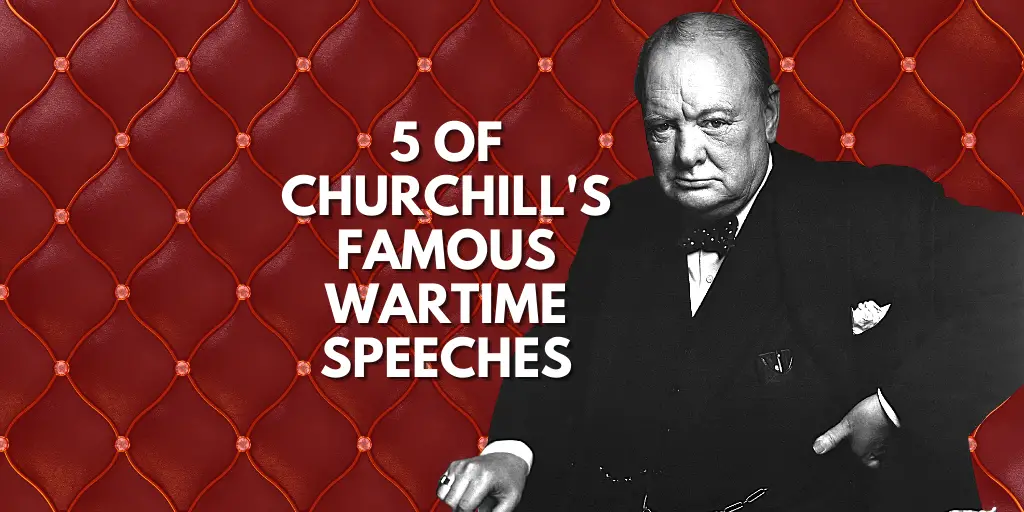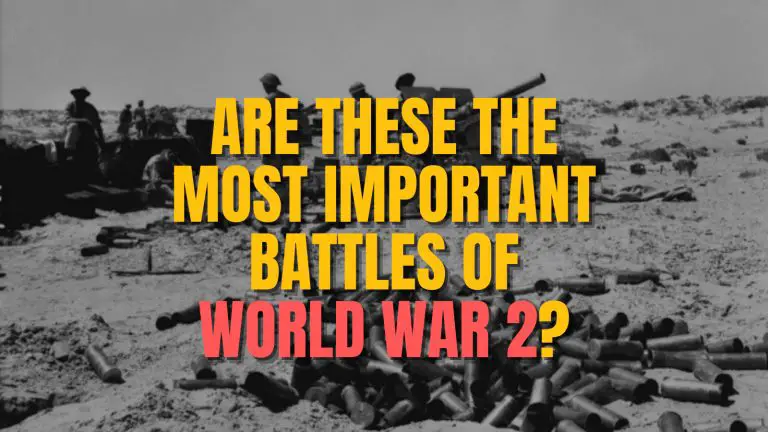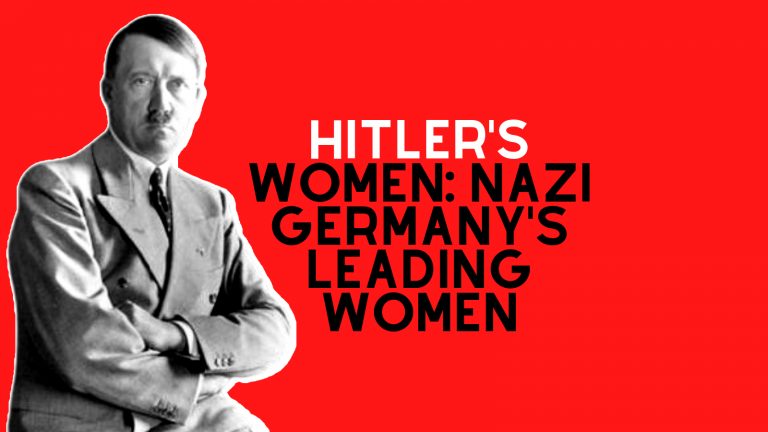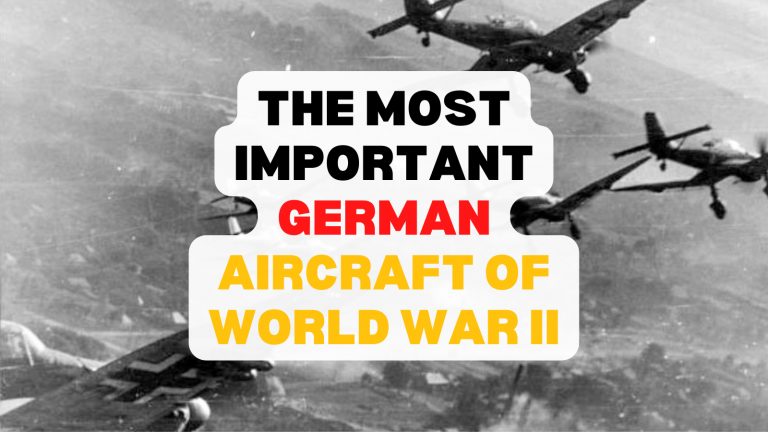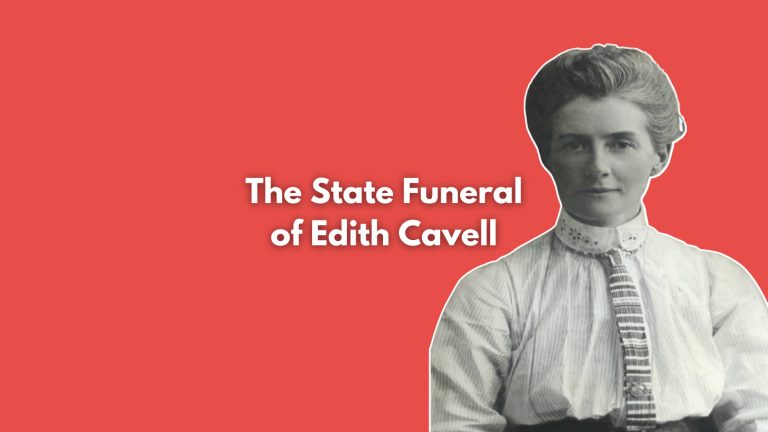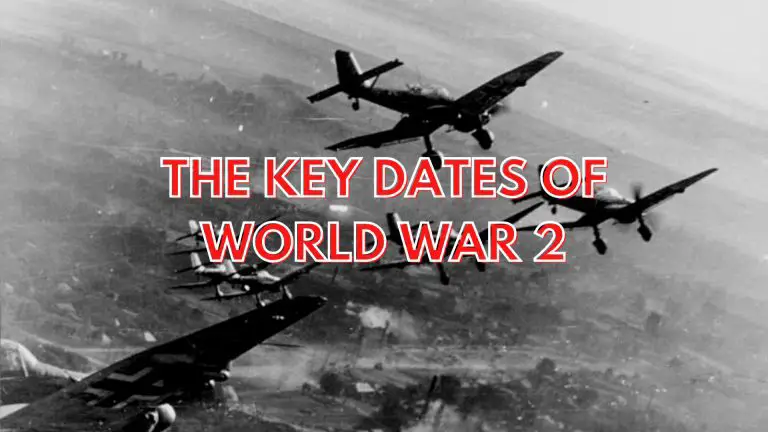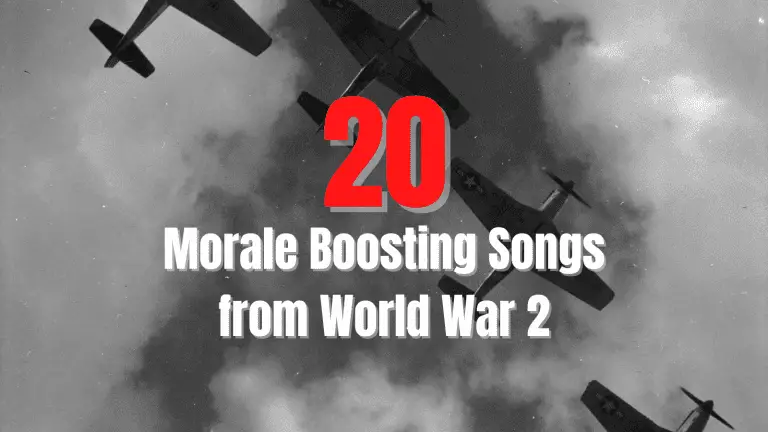5 of Churchill’s Wartime Speeches
Winston Churchill’s wartime speeches as Prime Minister are the stuff of legend.
During those wartime speeches, Winston Churchill gave birth to some phrases that are in common usage today; We shall fight on the beaches, finest hour, the few.
During world war ii, Churchill’s gravelly voice, tanged with a touch of a lisp, inspired a nation with emotive speeches.
Who could forget his plea to “defend our island whatever the cost may be” or the sinister warnings of “odious apparatus of nazi rule.”
Then there were the uplifting messages such as, “fight with growing confidence and growing strength in the air” or “this will be their finest hour.”
[/et_pb_text][/et_pb_column][/et_pb_row][et_pb_row _builder_version=”4.7.7″ _module_preset=”default”][et_pb_column type=”4_4″ _builder_version=”4.7.7″ _module_preset=”default”][et_pb_text _builder_version=”4.7.7″ _module_preset=”default” header_2_text_color=”#7e0f82″]Churchill’s “We shall fight on the beaches” Speech.
[/et_pb_text][/et_pb_column][/et_pb_row][et_pb_row _builder_version=”4.7.7″ _module_preset=”default”][et_pb_column type=”4_4″ _builder_version=”4.7.7″ _module_preset=”default”][et_pb_text _builder_version=”4.7.7″ _module_preset=”default” hover_enabled=”0″ sticky_enabled=”0″]Churchill delivered this speech on 4th June 1940 in the House of Commons.
This speech was given to update the House of Commons on the dire situation over in France.
Operation Dynamo, the evacuation of the troops at Dunkirk, had begun just a matter of days beforehand and had ended that very day. It had been a great success, managing to evacuate over 338,000 British and French troops from the beeches.
Yet, even that success couldn’t deny the catastrophic nature of the situation of the war. France was about to surrender. Churchill had to balance the negativity with a need for positivity.
The speech ended with a rousing cry to arms. As opposed to finishing on the famous line, we shall never surrender. There was a non-to subtle appeal to the United States for them to get involved in the war.
The speech had the desired effect in the House of Commons, appealing to MPs across the political divide. Labour MP Josiah Wedgwood wrote to Churchill afterward, with the words, “My dear Winston, That was 1000 guns and the speeches of 1000 years,”
It is worth pointing out that over the years a single line has been pulled from each of Winston Churchill’s wartime speeches in order to identify them. In this case, “We shall fight on the beaches.”
[/et_pb_text][/et_pb_column][/et_pb_row][et_pb_row _builder_version=”4.7.7″ _module_preset=”default”][et_pb_column type=”4_4″ _builder_version=”4.7.7″ _module_preset=”default”][et_pb_testimonial author=”Winston Churchill” portrait_url=”http://historywithhenry.com/wp-content/uploads/2021/01/Sir_Winston_Churchill_-_19086236948-scaled.jpg” _builder_version=”4.7.7″ _module_preset=”default”]I have, myself, full confidence that if all do their duty, if nothing is neglected, and if the best arrangements are made, as they are being made, we shall prove ourselves once again able to defend our Island home, to ride out the storm of war, and to outlive the menace of tyranny, if necessary for years, if necessary alone. At any rate, that is what we are going to try to do. That is the resolve of His Majesty’s Government-every man of them. That is the will of Parliament and the nation. The British Empire and the French Republic, linked together in their cause and in their need, will defend to the death their native soil, aiding each other like good comrades to the utmost of their strength. Even though large tracts of Europe and many old and famous States have fallen or may fall into the grip of the Gestapo and all the odious apparatus of Nazi rule, we shall not flag or fail. We shall go on to the end, we shall fight in France, we shall fight on the seas and oceans, we shall fight with growing confidence and growing strength in the air, we shall defend our Island, whatever the cost may be, we shall fight on the beaches, we shall fight on the landing grounds, we shall fight in the fields and in the streets, we shall fight in the hills; we shall never surrender, and even if, which I do not for a moment believe, this Island or a large part of it were subjugated and starving, then our Empire beyond the seas, armed and guarded by the British Fleet, would carry on the struggle, until, in God’s good time, the New World, with all its power and might, steps forth to the rescue and the liberation of the old.
[/et_pb_testimonial][/et_pb_column][/et_pb_row][et_pb_row _builder_version=”4.7.7″ _module_preset=”default”][et_pb_column type=”4_4″ _builder_version=”4.7.7″ _module_preset=”default”][et_pb_image src=”http://historywithhenry.com/wp-content/uploads/2021/01/large_000000-1-1.jpg” title_text=”large_000000-1″ align=”center” _builder_version=”4.7.7″ _module_preset=”default”][/et_pb_image][/et_pb_column][/et_pb_row][et_pb_row _builder_version=”4.7.7″ _module_preset=”default”][et_pb_column type=”4_4″ _builder_version=”4.7.7″ _module_preset=”default”][et_pb_text _builder_version=”4.7.7″ _module_preset=”default”]© IWM H 2628
[/et_pb_text][/et_pb_column][/et_pb_row][et_pb_row _builder_version=”4.7.7″ _module_preset=”default”][et_pb_column type=”4_4″ _builder_version=”4.7.7″ _module_preset=”default”][et_pb_text _builder_version=”4.7.7″ _module_preset=”default” header_2_text_color=”#7e0f82″]Churchill’s “Blood, toil, tears and sweat” speech
[/et_pb_text][/et_pb_column][/et_pb_row][et_pb_row _builder_version=”4.7.7″ _module_preset=”default”][et_pb_column type=”4_4″ _builder_version=”4.7.7″ _module_preset=”default”][et_pb_text _builder_version=”4.7.7″ _module_preset=”default”]This speech was delivered on the 13th May 1940 to the House of Commons. It was Churchill’s first speech to the house as the newly appointed Prime Minister.
Churchill had already used the phrase in his cabinet meeting just a few hours earlier.
The speech was designed to make clear his policy was to fight the Nazis instead of making moves for a peace settlement, which was favoured by some other prominent politicians, such as Lord Halifax.
When Churchill’s face appeared on the new five-pound note in September 2016. The famous phrase was used underneath his picture.
[/et_pb_text][/et_pb_column][/et_pb_row][et_pb_row _builder_version=”4.7.7″ _module_preset=”default”][et_pb_column type=”4_4″ _builder_version=”4.7.7″ _module_preset=”default”][et_pb_testimonial portrait_url=”http://historywithhenry.com/wp-content/uploads/2021/01/Sir_Winston_Churchill_-_19086236948-scaled.jpg” _builder_version=”4.7.7″ _module_preset=”default”]To form an Administration of this scale and complexity is a serious undertaking in itself, but it must be remembered that we are in the preliminary stage of one of the greatest battles in history, that we are in action at many other points in Norway and in Holland, that we have to be prepared in the Mediterranean, that the air battle is continuous and that many preparations, such as have been indicated by my hon. Friend below the Gangway, have to be made here at home. In this crisis I hope I may be pardoned if I do not address the House at any length today. I hope that any of my friends and colleagues, or former colleagues, who are affected by the political reconstruction, will make allowance, all allowance, for any lack of ceremony with which it has been necessary to act. I would say to the House, as I said to those who have joined this government: “I have nothing to offer but blood, toil, tears and sweat.”
We have before us an ordeal of the most grievous kind. We have before us many, many long months of struggle and of suffering. You ask, what is our policy? I can say: It is to wage war, by sea, land and air, with all our might and with all the strength that God can give us; to wage war against a monstrous tyranny, never surpassed in the dark, lamentable catalogue of human crime. That is our policy. You ask, what is our aim? I can answer in one word: It is victory, victory at all costs, victory in spite of all terror, victory, however long and hard the road may be; for without victory, there is no survival. Let that be realised; no survival for the British Empire, no survival for all that the British Empire has stood for, no survival for the urge and impulse of the ages, that mankind will move forward towards its goal. But I take up my task with buoyancy and hope. I feel sure that our cause will not be suffered to fail among men. At this time I feel entitled to claim the aid of all, and I say, “come then, let us go forward together with our united strength.
[/et_pb_testimonial][/et_pb_column][/et_pb_row][et_pb_row _builder_version=”4.7.7″ _module_preset=”default”][et_pb_column type=”4_4″ _builder_version=”4.7.7″ _module_preset=”default”][et_pb_text _builder_version=”4.7.7″ _module_preset=”default” header_2_text_color=”#7e0f82″]Churchill’s “The Few” Speech
[/et_pb_text][/et_pb_column][/et_pb_row][et_pb_row _builder_version=”4.7.7″ _module_preset=”default”][et_pb_column type=”4_4″ _builder_version=”4.7.7″ _module_preset=”default”][et_pb_text _builder_version=”4.7.7″ _module_preset=”default”]This was delivered on the 20th of August 1940 in the House of Commons.
Churchill first used the famous phrase, “Never was so much owed by so many to so few,” after visiting the Number 11 Group operations room at RAF Uxbridge on the 16th of August. He was astounded by what he had seen and what he had heard over the radio.
“The few” has become a term that has evolved to symbolise the Battle of Britain pilots, that thought over the skies of Southern England in the summer of 1940
This speech is a little more upbeat from some of his previous efforts. Following defeat in the Battle of France, it highlights a small yet significant victory. Yet it still did attempt to prepare the population for a possible German invasion.
[/et_pb_text][/et_pb_column][/et_pb_row][et_pb_row _builder_version=”4.7.7″ _module_preset=”default”][et_pb_column type=”4_4″ _builder_version=”4.7.7″ _module_preset=”default”][et_pb_testimonial portrait_url=”http://historywithhenry.com/wp-content/uploads/2021/01/Sir_Winston_Churchill_-_19086236948-scaled.jpg” _builder_version=”4.7.7″ _module_preset=”default”]The gratitude of every home in our Island, in our Empire, and indeed throughout the world, except in the abodes of the guilty, goes out to the British airmen who, undaunted by odds, unwearied in their constant challenge and mortal danger, are turning the tide of the World War by their prowess and b~ their devotion. Never in the field of human conflict was so much owed by so many to so few. All hearts go out to the fighter pilots, whose brilliant actions we see with our own eyes day after day; but we must never forget that all the time, night after night, month after month, our bomber squadrons travel far into Germany, find their targets in the darkness by the highest navigational skill, aim their attacks, often under the heaviest fire, often with serious loss, with deliberate careful discrimination, and inflict shattering blows upon the whole of the technical and war-making structure of the Nazi power. On no part of the Royal Air Force does the weight of the war fall more heavily than on the daylight bombers, who will play an invaluable part in the case of invasion and whose unflinching zeal it has been necessary in the meanwhile on numerous occasions to restrain.
[/et_pb_testimonial][/et_pb_column][/et_pb_row][et_pb_row _builder_version=”4.7.7″ _module_preset=”default”][et_pb_column type=”4_4″ _builder_version=”4.7.7″ _module_preset=”default”][et_pb_image src=”http://historywithhenry.com/wp-content/uploads/2021/01/large_000000-188×300.jpg” title_text=”large_000000″ align=”center” _builder_version=”4.7.7″ _module_preset=”default”][/et_pb_image][/et_pb_column][/et_pb_row][et_pb_row _builder_version=”4.7.7″ _module_preset=”default”][et_pb_column type=”4_4″ _builder_version=”4.7.7″ _module_preset=”default”][et_pb_text _builder_version=”4.7.7″ _module_preset=”default”]© IWM Art.IWM PST 8774
[/et_pb_text][/et_pb_column][/et_pb_row][et_pb_row _builder_version=”4.7.7″ _module_preset=”default”][et_pb_column type=”4_4″ _builder_version=”4.7.7″ _module_preset=”default”][et_pb_text _builder_version=”4.7.7″ _module_preset=”default” header_2_text_color=”#7e0f82″]Churchill’s “The end of the beginning” speech
[/et_pb_text][/et_pb_column][/et_pb_row][et_pb_row _builder_version=”4.7.7″ _module_preset=”default”][et_pb_column type=”4_4″ _builder_version=”4.7.7″ _module_preset=”default”][et_pb_text _builder_version=”4.7.7″ _module_preset=”default”]This speech was delivered on November the 10th 1942 at the Mansion House at Lord Mayor’s Luncheon.
Finally, Winston Churchill had a significant victory to talk about. The speech focuses on the campaign in North Africa, and specifically Montgomery’s victory at the Second Battle of El-Alamein.
Once again, Churchill tries to give balance; pleasure at the victory, but with a warning. There are still many long dark hours ahead.
[/et_pb_text][/et_pb_column][/et_pb_row][et_pb_row _builder_version=”4.7.7″ _module_preset=”default”][et_pb_column type=”4_4″ _builder_version=”4.7.7″ _module_preset=”default”][et_pb_testimonial portrait_url=”http://historywithhenry.com/wp-content/uploads/2021/01/Sir_Winston_Churchill_-_19086236948-scaled.jpg” _builder_version=”4.7.7″ _module_preset=”default”]The late M. Venizelos observed that in all her wars England — he should have said Britain, of course — always wins one battle — the last. It would seem to have begun rather earlier this time. General Alexander, with his brilliant comrade and lieutenant, General Montgomery, has gained a glorious and decisive victory in what I think should be called the battle of Egypt. Rommel’s army has been defeated. It has been routed. It has been very largely destroyed as a fighting force.
This battle was not fought for the sake of gaining positions or so many square miles of desert territory. General Alexander and General Montgomery fought it with one single idea. they meant to destroy the armed force of the enemy and to destroy it at the place where the disaster would be most far-reaching and irrecoverable….
Now this is not the end. It is not even the beginning of the end. but it is, perhaps, the end of the beginning. Henceforth Hitler’s Nazis will meet equally well armed, and perhaps better armed troops. Hence forth they will have to face in many theatres of war that superiority in the air which they have so often used without mercy against other, of which they boasted all round the world, and which they intended to use as an instrument for convincing all other peoples that all resistance to them was hopeless….
We mean to hold our own. I have not become the King’s First Minister in order to preside over the liquidation of the British Empire. For that task, if ever it were prescribed, someone else would have to be found, and, under democracy, I suppose the nation would have to be consulted. I am proud to be a member of that vast commonwealth and society of nations and communities gathered in and around the ancient British monarchy, without which the good cause might well have perished from the face of the earth. Here we are, and here we stand, a veritable rock of salvation in this drifting world….
The British and American affairs continue to prosper in the Mediterranean, and the whole event will be a new bond between the English-speaking peoples and a new hope for the whole world.
[/et_pb_testimonial][/et_pb_column][/et_pb_row][et_pb_row _builder_version=”4.7.7″ _module_preset=”default”][et_pb_column type=”4_4″ _builder_version=”4.7.7″ _module_preset=”default”][et_pb_text _builder_version=”4.7.7″ _module_preset=”default” header_2_text_color=”#7e0f82″]Churchill’s “Their finest hour” speech
[/et_pb_text][/et_pb_column][/et_pb_row][et_pb_row _builder_version=”4.7.7″ _module_preset=”default”][et_pb_column type=”4_4″ _builder_version=”4.7.7″ _module_preset=”default”][et_pb_text _builder_version=”4.7.7″ _module_preset=”default”]Churchill gave this speech on 18th June 1940 in the House of Commons.
In it, Churchill reflects on defeat in the Battle of France.
However, his final paragraph is the most famous of this speech. Once again, it is a call to arms.
[/et_pb_text][/et_pb_column][/et_pb_row][et_pb_row _builder_version=”4.7.7″ _module_preset=”default”][et_pb_column type=”4_4″ _builder_version=”4.7.7″ _module_preset=”default”][et_pb_testimonial portrait_url=”http://historywithhenry.com/wp-content/uploads/2021/01/Sir_Winston_Churchill_-_19086236948-scaled.jpg” _builder_version=”4.7.7″ _module_preset=”default”]What General Weygand called the Battle of France is over. I expect that the Battle of Britain is about to begin. Upon this battle depends the survival of Christian civilization. Upon it depends our own British life, and the long continuity of our institutions and our Empire. The whole fury and might of the enemy must very soon be turned on us. Hitler knows that he will have to break us in this Island or lose the war. If we can stand up to him, all Europe may be free and the life of the world may move forward into broad, sunlit uplands. But if we fail, then the whole world, including the United States, including all that we have known and cared for, will sink into the abyss of a new Dark Age made more sinister, and perhaps more protracted, by the lights of perverted science. Let us therefore brace ourselves to our duties, and so bear ourselves that, if the British Empire and its Commonwealth last for a thousand years, men will still say, “This was their finest hour.
[/et_pb_testimonial][/et_pb_column][/et_pb_row][/et_pb_section][et_pb_section fb_built=”1″ _builder_version=”4.7.7″ _module_preset=”default”][et_pb_row _builder_version=”4.7.7″ _module_preset=”default”][et_pb_column type=”4_4″ _builder_version=”4.7.7″ _module_preset=”default”][et_pb_image src=”http://historywithhenry.com/wp-content/uploads/2021/01/large_000000-2.jpg” align=”center” _builder_version=”4.7.7″ _module_preset=”default”][/et_pb_image][/et_pb_column][/et_pb_row][et_pb_row _builder_version=”4.7.7″ _module_preset=”default”][et_pb_column type=”4_4″ _builder_version=”4.7.7″ _module_preset=”default”][et_pb_text _builder_version=”4.7.7″ _module_preset=”default”]© IWM MH 26392
[/et_pb_text][/et_pb_column][/et_pb_row][/et_pb_section]